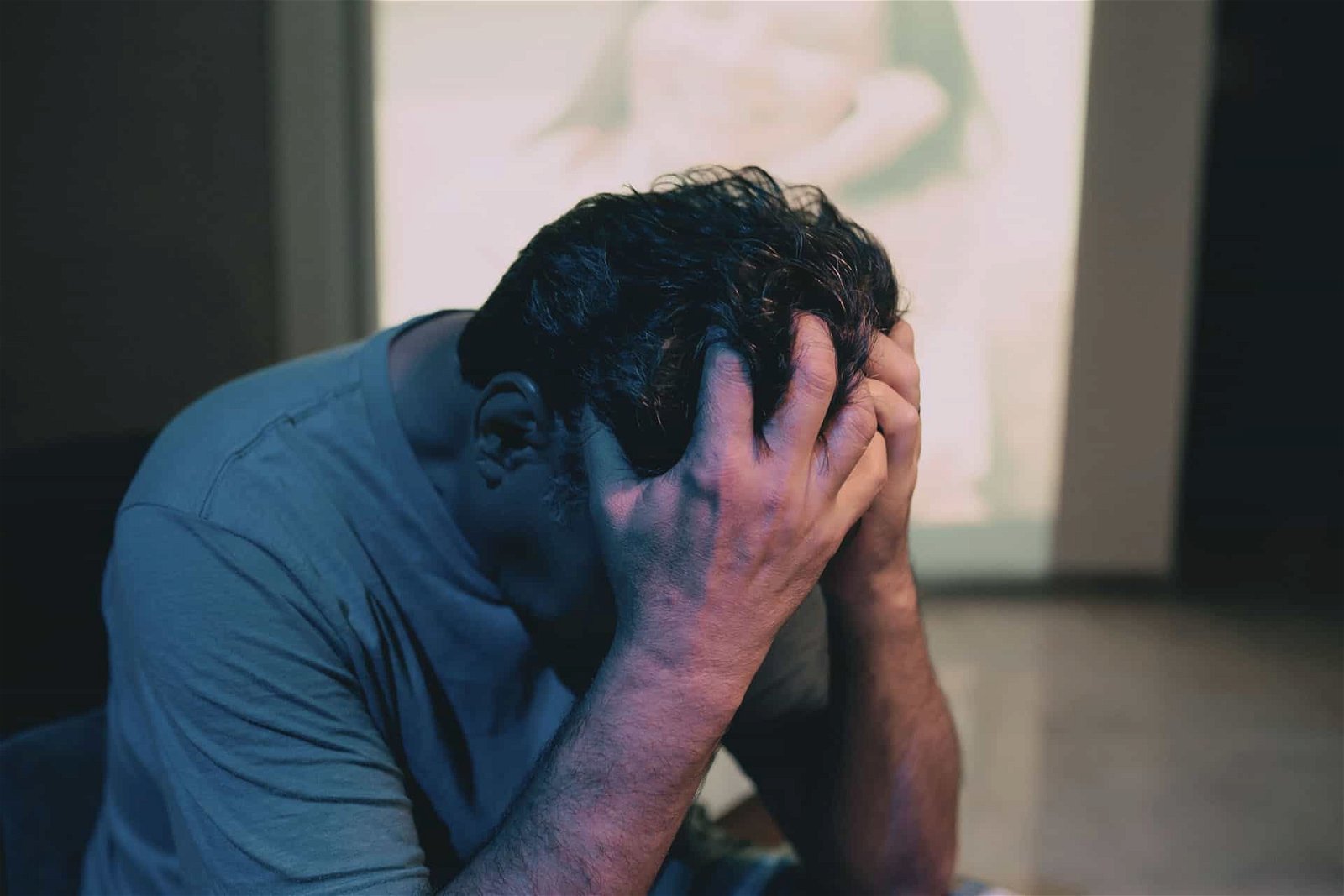What are Benzodiazepines?
Benzodiazepines are prescription drugs often intended to treat anxiety and seizure disorders. Sometimes, these substances are also used in the treatment of insomnia and alcohol withdrawal symptoms.
While benzodiazepines are effective in managing the severe symptoms, of the mentioned conditions, they are known to be habit-forming and highly addictive. Abruptly discontinuing use of benzodiazepines can lead to benzodiazepine withdrawal.
These medications exert their effects by enhancing the activity of a neurotransmitter called gamma-aminobutyric acid (GABA) in the brain, which leads to a calming and sedative effect.
Why Would You Be Prescribed Benzodiazepines?

Benzodiazepines are commonly prescribed to individuals experiencing symptoms of anxiety disorders, panic disorders, and generalized anxiety disorder. These medications provide rapid relief from the overwhelming feelings of anxiety and tension by promoting relaxation and reducing excessive nervousness.
Additionally, benzodiazepines are often used as a short-term solution for acute insomnia, helping individuals fall asleep more easily and improving sleep quality. They can also be used in specific medical situations, such as before certain medical procedures or surgeries, to alleviate anxiety and induce a sense of calmness.
These drugs are typically prescribed for short-term use due to their potential for dependence and withdrawal symptoms if used for prolonged periods. Unfortunately, many people abuse these medications because they provide a euphoric and drowsy high.
If you or a loved one are struggling with addiction to benzodiazepines, visiting our Benzo detox center is the first step towards recovery. The acute withdrawal symptoms associated with benzodiazepine use and physical dependence can be severe and life-threatening in some cases, so participating in our medical detox will help ease some of the worst withdrawal symptoms you may experience.
Our Benzodiazepine detox centers in Massachusetts can provide the support and medical care required for your addiction treatment and ensure your safety and comfort during the detoxification and withdrawal process.

Signs of Benzo Addiction
Identifying the signs of benzodiazepine addiction is crucial for early intervention and effective treatment. The Substance Abuse and Mental Health Services Administration (SAMHSA) outlines several key indicators that can help recognize the presence of benzodiazepine addiction, especially in co-occurring mental health disorders.
A hallmark of Benzo abuse is increased tolerance. Over time, individuals may find that they experience drug cravings and need higher doses of benzodiazepines to achieve the same calming effects they once experienced with lower doses. This tolerance development can lead to escalated usage of prescription drugs, increasing the risk of benzo addiction.
People struggling with benzodiazepine addiction might also experience an increasing preoccupation with obtaining and using the drug, often at the expense of their social, occupational, and recreational activities.
Neglecting responsibilities, a decline in personal hygiene, and a noticeable decline in one’s overall emotional and mental health, and well-being are indicators that warrant attention.
SAMHSA also notes that unsuccessful attempts to quit or control benzodiazepine use, continued use despite negative consequences, and the prioritization of drug use over personal relationships are further signs of addiction.
Recognizing these signs and seeking professional help is vital to the treatment process of addressing benzodiazepine addiction and promoting lasting recovery.
Understanding the Differences in Types of Benzos

Understanding the different types of benzodiazepines, their intended uses, and their potential for abuse is essential for several reasons:
Appropriate Treatment
Each benzodiazepine has its unique characteristics, including onset of action, duration, and therapeutic effects. Understanding these differences helps healthcare and medical professionals to choose the most appropriate medication for a patient’s specific condition.
For instance, a fast-acting benzodiazepine like alprazolam (Xanax) might be better suited for acute anxiety, while a longer-acting one like clonazepam (Klonopin) might be preferred for ongoing anxiety management. Tailoring the treatment to individual needs improves the chances of successful symptom relief.
Identifying Warning Signs
Familiarity with the different types of benzodiazepines and their common uses enables healthcare and mental health professionals to recognize signs of potential abuse or dependency in patients. Identifying these signs early allows for intervention and the adjustment of treatment plans, reducing the risk of more severe problems down the line.
Avoiding Harmful Interactions
Awareness of the various benzodiazepines and their properties helps both healthcare providers and patients avoid harmful drug interactions. Combining benzodiazepines with other drugs like alcohol or opioids can lead to serious respiratory depression and even death.
Patients who understand these risks are more likely to adhere to medication instructions and avoid mixing medications with other drugs that could pose dangers.
Informed Decision-Making
Patients who are educated about the different types of benzodiazepines can engage in informed discussions with their healthcare providers about treatment options. They can weigh the benefits and potential risks of each medication, enabling shared decision-making in their treatment journey.
Different Types of Benzodiazepines

Alprazolam (Xanax)
Alprazolam, commonly sold under the brand name Xanax, is a potent benzodiazepine primarily used to manage anxiety disorders, including generalized anxiety disorder (GAD) and panic disorder. These short-acting benzos make it suitable for addressing acute anxiety, but it’s important to note that Xanax has a high potential for abuse and dependence. Due to its rapid effects, individuals may experience a sense of euphoria, leading to misuse and addiction.
Misuse can escalate to higher doses and more frequent use, increasing the risk of adverse effects and withdrawal symptoms when trying to quit. Xanax should be used strictly according to the prescribed dosage and duration to minimize these risks.
Diazepam (Valium)
Diazepam, known as Valium, is a versatile benzodiazepine with a range of applications. It’s prescribed to manage anxiety disorders, muscle spasms, and seizures. Valium can also be utilized to alleviate symptoms of alcohol withdrawal symptoms and as a premedication before certain medical procedures.
However, like other benzodiazepines, Valium can lead to tolerance and dependency if used long-term. Abruptly discontinuing Valium can result in acute and protracted withdrawal and symptoms, including anxiety, insomnia, and even seizures.
Due to its sedative effects, it’s crucial to avoid alcohol and other central nervous system depressants while taking Valium, as combining these substances can lead to respiratory depression and other adverse effects. Valium should be taken under medical supervision, and any changes to the prescribed regimen should be discussed with a healthcare provider.
Lorazepam (Ativan)
Lorazepam, marketed as Ativan, is commonly prescribed for the short-term treatment of anxiety disorders, including generalized anxiety and panic disorders. It’s also used to manage anxiety associated with depression and to alleviate symptoms before medical procedures. Ativan’s sedative effects make it useful for managing acute anxiety, but prolonged use can lead to tolerance and dependence.
Misusing Ativan, especially in combination with alcohol or other substances, can result in dangerous respiratory depression. Long-term use should be avoided, and gradual tapering under medical supervision is recommended when discontinuing the medication.
Clonazepam (Klonopin)
Clonazepam, sold as Klonopin, is utilized to manage panic disorder and certain types of epilepsy, including absence and myoclonic seizures. It has a longer duration of action, making it suitable for continuous anxiety symptom relief throughout the day. Klonopin, like other benzodiazepines, should be used cautiously due to the risk of dependence.
Abruptly stopping clonazepam can lead to early withdrawal and symptoms, so a gradual tapering schedule is usually recommended when discontinuing the medication. It’s important to avoid alcohol and other sedative substances while taking Klonopin to prevent adverse interactions and increased sedation.
Temazepam (Restoril)
Temazepam, known as Restoril, is primarily prescribed for the short-term treatment of insomnia. It helps individuals fall asleep more easily and enhances overall sleep quality. Restoril should be taken shortly before bedtime to minimize daytime sedation.
Misusing Restoril can lead to dependency and withdrawal symptoms upon cessation. Prolonged use may result in tolerance, necessitating higher doses for the same effect. Healthcare providers usually recommend using Restoril for brief periods to avoid these potential risks.
Oxazepam (Serax)
Oxazepam, marketed as Serax, is often used to manage anxiety and alcohol withdrawal symptoms. It has a shorter half-life compared to some other benzodiazepines, making it less likely to accumulate in the body and cause daytime sedation.
Chlordiazepoxide (Librium)
Chlordiazepoxide, sold as Librium, is prescribed for generalized anxiety disorder and is commonly used to manage alcohol withdrawal symptoms. Librium’s long duration of action makes it suitable for maintaining a consistent level of relief from anxiety.
Misuse of Librium can lead to dependency and withdrawal symptoms upon cessation, making it essential to follow medical guidance and avoid abrupt discontinuation.
Clorazepate (Tranxene)
Clorazepate, known as Tranxene, is prescribed for anxiety disorders and is sometimes used as an adjunctive treatment for certain seizure disorders. Tranxene’s duration of action allows for sustained relief from anxiety symptoms throughout the day.

Get The Care You Need and Deserve
Woburn Addiction Treatment is a leader in the addiction treatment field, with proven success in facilitating long-term recovery. Our team of top clinical & medical experts specializes in treating addiction coupled with mental illness, ensuring that each person receives individualized care. Call us – we’re available 24/day, 7 days/week.
Benzodiazepine Withdrawal Symptoms

If you have been taking benzodiazepines regularly and for a long time, you will experience protracted withdrawal symptoms or acute withdrawal, once you stop using them. This can happen if you were abusing them with or without a prescription.
Unfortunately, benzodiazepine withdrawal syndrome can be hazardous without proper medical assistance. Common benzo withdrawal syndrome symptoms may include:
- Sleep disturbances
- Irritability
- Tension and anxiety
- Panic attacks
- Tremors
- Sweating
- Difficulty concentrating
- Nausea and vomiting
- Weight loss
- Heart palpitations
- Headaches
- Muscle stiffness and pain
- Perceptual changes
- Seizures
- Psychosis
Because benzodiazepine withdrawal can cause severe symptoms like seizures and psychosis, attending our licensed medical detox and treatment program can provide comfort and safety for any withdrawal severity.
How Does Withdrawal Last When Quitting Benzos?
When it comes to quitting benzodiazepines and undergoing detox, the duration of the process can vary significantly from person to person.
Several factors influence the timeline, including the specific benzo being used, the dosage, how long the individual has been taking them, and their overall physical and mental health. Understanding the withdrawal and detox process is essential for those dealing with benzo addiction.
Benzodiazepine Withdrawal Timeline
Early Withdrawal (First Few Days)
Benzo withdrawal symptoms can begin within a few hours to a few days after the last dose. Common benzo withdrawal symptoms during this phase include anxiety, insomnia, mood swings, and drug cravings. It’s crucial to note that quitting benzos “cold turkey” can lead to severe symptoms, making medical supervision essential.
Acute Withdrawal (1-4 Weeks)
During this phase, withdrawal symptoms intensify and may include panic attacks, generalized anxiety disorder symptoms, and even seizures, especially with long-acting benzos. Medical detox programs often use detox medications to help manage these symptoms and reduce discomfort.
Protracted Withdrawal (Weeks to Months)
Some individuals experience protracted withdrawal syndrome, where symptoms persist for an extended period. These withdrawal symptoms may include ongoing anxiety, mood swings, and trouble sleeping. Support groups, therapy sessions, and residential treatment programs can be valuable during this phase.
What To Expect At a Benzodiazepine Detox Center in Massachusetts

At our Benzodiazepine detox centers in Massachusetts, we aim to help you safely and comfortably overcome uncomfortable withdrawal symptoms. At Woburn Addiction Treatment we use an array of evidence-based treatments to reduce withdrawal symptoms, including medications, psychological support, support groups, nutritional counseling, and individualized treatment planning.
Assessment and Admission (Day 1)
When you arrive at our benzodiazepine detox and treatment facility you will undergo an in-depth assessment to determine your individual needs. These assessments cover information like your substance use disorder or other substance abuse, mental health, physical health, and family history. All of this information will allow our staff members to create a treatment plan that addresses your specific needs.
Common questions asked during an assessment include:
- Which benzodiazepine are you addicted to?
- Were you abusing any other substances?
- How much of the drug and how often were you using it?
- Do you have any diagnosed mental illness or mental health conditions?
- Have you ever attended an addiction treatment center or facility before?
- Do you have any medical conditions that require treatment or medication?
- Does your family have a history of a mental health disorder, illness, or addiction?
Stabilization (Days 1-3)
Without medical treatment, benzodiazepine withdrawal symptoms can be extremely uncomfortable, painful, and even life-threatening. The safest way to detox from benzodiazepines is to slowly taper off them.
During the initial phase of detox, our focus is on stabilizing your condition. You’ll receive 24/7 medical supervision and support. Our detox medications will be administered as needed to manage withdrawal symptoms effectively and ensure your safety. The length of this phase may vary based on your individual needs.
At a detox and treatment center, the physician will prescribe a long-acting benzodiazepine medication and gradually reduce your dose over the next several days or weeks. Slowly reducing your dose will allow your body to adjust to progressively lower doses, thereby reducing the intensity of withdrawal symptoms.
Additional symptom-specific medications can be prescribed to manage any symptoms that cause you discomfort.
During stabilization, the medical team will monitor your vitals to ensure your safety. Tapering using long-acting benzodiazepines will also reduce your risk for seizures and other medical complications.
Acute Withdrawal (Days 4-14)
As you progress through detox, you may experience more intense withdrawal symptoms during this phase, such as anxiety, mood swings, and potentially seizures. Our medical professionals will continue to closely monitor your progress and adjust your treatment as necessary to alleviate discomfort.
Tapering and Transition (Days 15-21)
Depending on your specific benzo and addiction severity, we may gradually taper your medication to safely reduce physical dependence. This phase is critical for minimizing the risk of protracted withdrawal symptoms and preparing you for the next steps in your recovery journey.
Evaluation and Treatment Planning (Day 22)
After you are medically stabilized, you will begin the recovery process by collaborating with an addiction treatment specialist to create a plan for continued care. It’s important to note that the detox process is only the first step in the recovery process for addiction treatment.
Our additional programs like inpatient or outpatient rehab provide you with psychological and behavioral therapies that are necessary to maintain long-term recovery.
Your counselor might recommend you transition into a sober living housing program after you complete benzodiazepine rehab because doing so can help you prepare for independent living as a sober individual.
Get Connected With a Top Rated Benzo Detox Center in Massachusetts
Benzodiazepine addiction and withdrawal symptoms can be incredibly difficult to overcome, especially if you are taking these medications to treat an anxiety or seizure disorder. Attending our reputable benzodiazepine detox and treatment center will ensure that you overcome withdrawal symptoms safely.
Woburn Addiction Treatment Benzo Detox and Treatment
At Woburn Addiction Treatment, our team works with some of the highest-rated drug and alcohol detox centers in Massachusetts. Before you transition to one of our outpatient programs, we will help you locate the right detox program for you so you can start your recovery journey safely.
What You Can Expect at Woburn Addiction Treatment
When you choose Woburn Addiction Treatment Center, you can expect a holistic and personalized approach designed to guide you through every step of the addiction recovery journey. Our center is founded on evidence-based treatments that encompass the physical, emotional, and psychological facets of addiction.
As you explore our website, you’ll discover a diverse range of services we offer, including medically supervised detoxification, individual and group therapy, family therapy, and holistic therapies that promote comprehensive healing. Upon your arrival, we will conduct a thorough assessment, enabling our treatment team to craft a tailored plan that suits your unique needs and circumstances.
Our commitment to addressing dual diagnosis is integral to our approach, acknowledging the intersection of addiction and underlying mental health disorders. This integrated strategy seeks to simultaneously address both components, fostering a more complete recovery.
Taking Care of Your Long-Term Emotional Health and Lifelong Recovery

At Woburn Addiction Treatment Center, we place considerable emphasis on effective and compassionate substance use disorder treatment which includes guiding you to a place that can best help you manage benzo withdrawal symptoms. We also pride ourselves on offering aftercare planning, ensuring that when you leave our facility, you’ll have a strong support system and resources in place for your ongoing recovery journey. From rapid detox to therapy and continuous guidance, Woburn Addiction Treatment Center is dedicated to providing a supportive and nurturing environment that empowers individuals like you to achieve enduring recovery.
The sooner you get help, the easier it will be, so don’t wait any longer. Call now to start your recovery journey at (781) 622-9190. We are here to guide you every step of the way.


